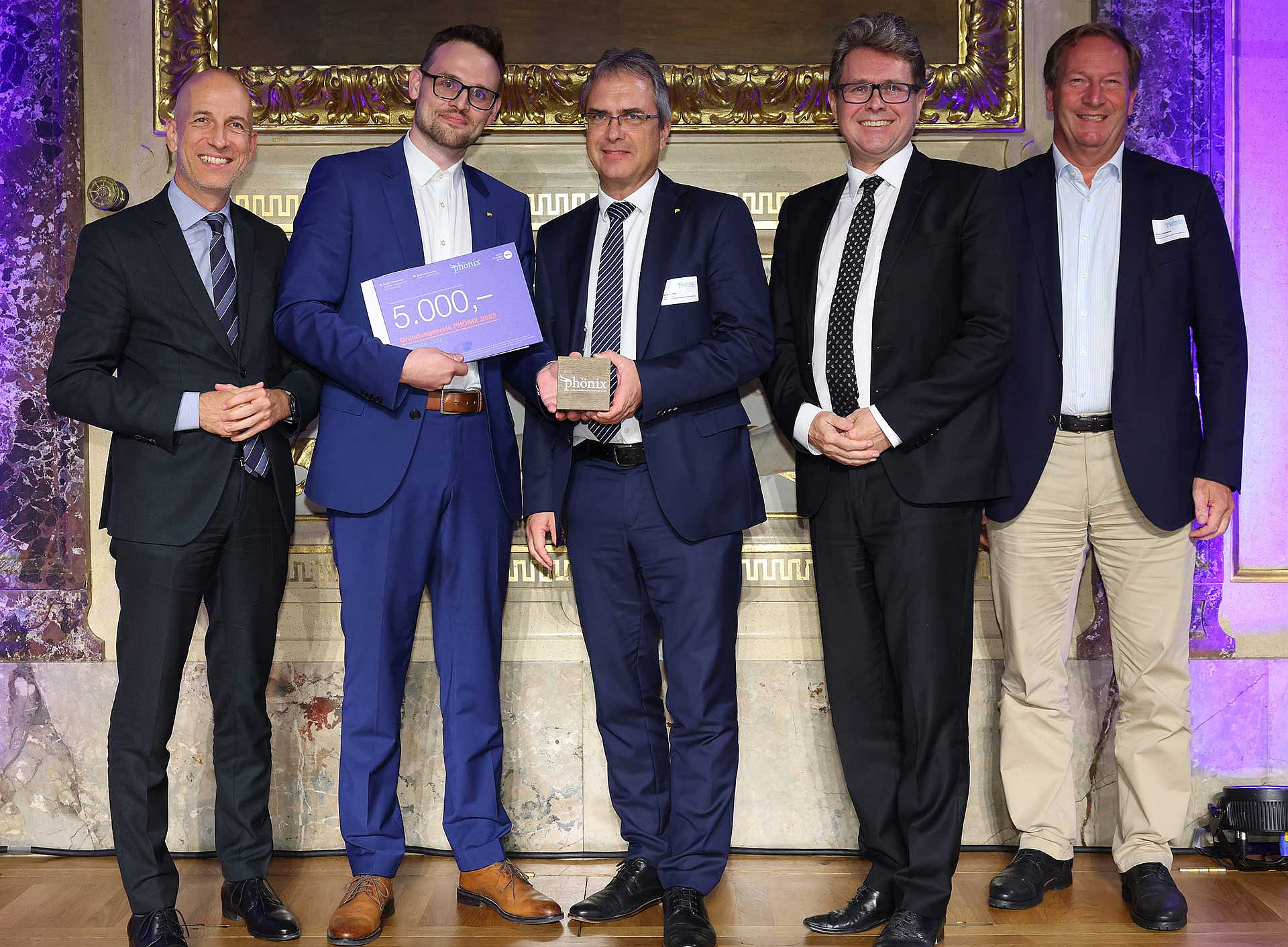Tenside sind nicht nur in Wasch- und Reinigungsmitteln enthalten, sondern auch wichtige Bestandteile in Farben, Kosmetika, in der Lebensmittelherstellung. Sie werden in der chemischen-, pharmazeutischen- und der Agrarindustrie eingesetzt. Großteils basieren diese aber auf fossilen Rohstoffen und werden nicht nachhaltig produziert. Nur etwa fünf Prozent der weltweiten Tenside gelten als vollständig biobasiert. Und genau hier setzt das Prototypen-Projekt der Universität Graz an. Mittels grüner Chemie sollen aus Abfällen und Nebenströmen neuartige und biobasierte Tenside hergestellt werden. Die entwickelten Synthesestrategien reduzieren anfallende Nebenprodukte deutlich.
Der Gründungspreis Phönix wird vom Bundesministerium für Digitalisierung und Wirtschaftsstandort und dem Bundesministerium für Bildung, Wissenschaft und Forschung ausgeschrieben und unterstützt Start-ups, Spin-offs und Prototypen durch die Auszeichnung von wirtschaftlich erfolgreich umgesetzten Forschungs- und Entwicklungsergebnissen.
